Search
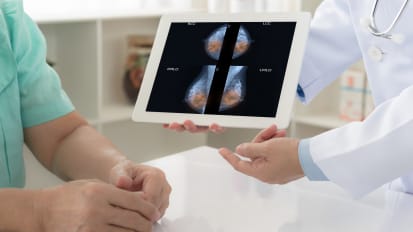 Video
Video
Breast MRI and Advanced Breast Intervention
Bonnie Joe, MD, PhD, discusses how breast MRI is performed, common indications for breast MRI and advanced methods for biopsy and pre-surgical localization of tumors. Video
Video
Long COVID: A New Way to Look at a Growing Problem
Synthesizing multiple studies, pulmonologist Brian Block, MD, reveals which patients are at risk for lasting symptoms from infection with the coronavirus (it’s not who you might think).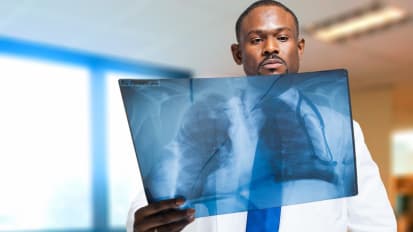 Video
Video
Lung Cancer Screening: Who, How and When to Refer
†horacic radiologist Brett M. Elicker, MD, and thoracic surgeon Johannes Kratz, MD, present about current lung cancer screening guidelines: who, how, and when to refer. Video
Video
Placenta Accreta Spectrum Disorder: Proven Strategies from a Multidisciplinary Team
Placenta accreta spectrum disorder is a varied and increasingly common complication of pregnancy, so ob/gyns need a firm grasp of risk factors and ultrasound signs. Video
Video
Screening Guidelines for Common Cancers: A Lifesaving Update
In just 35 minutes, hematologist-oncologist Akshiv Malhotra, MD, presents the current recommendations on cervical, breast, colon and lung cancers, breaking down the test options for each and when to start tests based on a patient’s risk. Video
Video
When the Nose Doesn’t Know: Identifying Types of Smell Loss in the Time of COVID
In this guide to understanding the condition and counseling patients appropriately, rhinologist Jose Gurrola II, MD, covering types of smell loss, the impact on patients’ lives, when to order labs or imaging, expected recovery times for COVID patients, and therapies worth trying.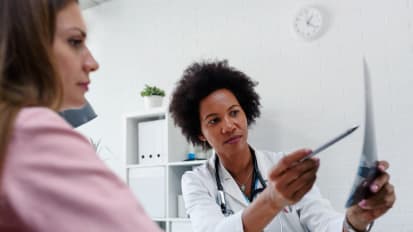 Video
Video
Breast Cancer Treatment Strategies: Experts Break Down the Latest
Reporting from the renowned San Antonio Breast Cancer Symposium, UCSF specialists present new research findings relevant to the complicated decisions made daily in designing treatment plans for individual patients. Video
Video
Cancer Preventive Care: Empower Your Patients to Take Small-But-Significant Steps
Patients worry about cancer but struggle to make lifestyle changes. Here’s how to discuss factors they can control and realistic steps they can take. Video
Video
Primary Care Predicaments: Myopathies, Neuropathies & Neuromuscular Conditions, Oh My!
From ALS to myasthenia gravis to Guillain-Barré syndrome, potentially aggressive neuromuscular disorders can present with a range of nebulous symptoms.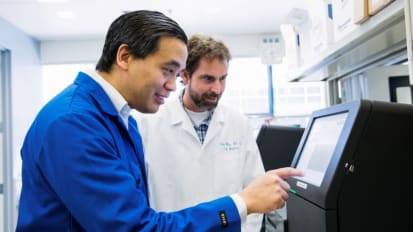 Video
Video
Clinical UCSF mNGS Assay for Diagnosis of Neurological Infections
Despite extensive conventional testing, acute neurological illness in hospitalized patients is difficult to diagnose. Charles Chiu, MD, PhD, discusses an mNGS test that identifies pathogens causing neurological infections from cerebrospinal fluid and how a recent multi-hospital study has demonstrated the clinical utility of this test. Video
Video
Endocrine Tests: Keys to Interpreting Results and Identifying Issues
Neuro-endocrinologist Lewis S. Blevins Jr., MD, a specialist in pituitary disorders, breaks down the complexities of hormone levels, with wisdom on how various conditions typically look both in terms of symptoms and test results. Video
Video
Lumbar Fusion: Strategies to Lower Complications and Optimize Corrections
Focusing particularly on the needs of obese patients, neurosurgeon Aaron Clark, MD, PhD, discusses anterior and lateral approaches to lumbar interbody fusion. Video
Video
Managing PCOS with a Comprehensive Care Plan
Heather Gibson Huddleston, MD, details the comprehensive care plan for polycystic ovary syndrome (PCOS) used at the UCSF Center for Reproductive Health. Video
Video
Uterine Fibroids Conclusions
Dr. Jeannette Lager concludes her presentation on uterine fibroids by recapping the types and classifications, common presentations and medical treatment options.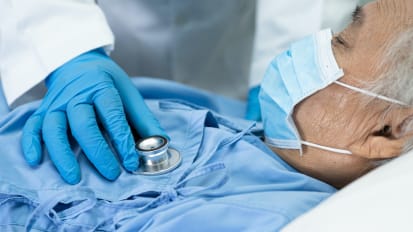 Video
Video
Care of Geriatric Patients in the Time of COVID-19
UCSF geriatrician and pulmonologist Leah Witt, MD, discusses how to identify high-risk senior patients, the most common course of the disease, useful monitoring methods and important follow-up on hospitalized patients after discharge. Video
Video
A Guide to GERD: Managing Symptoms and Complications of a Common Condition
With gastroesophageal reflux disease affecting 40% of the U.S. population every month, primary care providers need a straightforward plan for initiating therapy, as well as an up-to-date understanding of causes and treatment complications.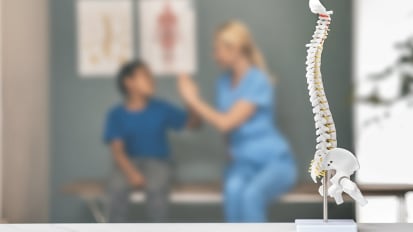 Video
Video
Pediatric Spondylolisthesis: Identifying Surgical Candidates and Selecting the Approach
In a talk with relevance for both adult and pediatric spinal care providers, orthopedic surgeon Sigurd Berven, MD, discusses complex decisions on whether and how to treat a child with high-grade spondylolisthesis.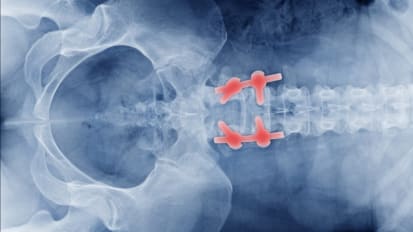 Video
Video
Complex Spine Surgery: Secrets of Successful Closure
Dr. Scott Hansen discusses techniques, options and strategies to stabilize soft tissues and prevent post-op wound complications, even in the most challenging cases.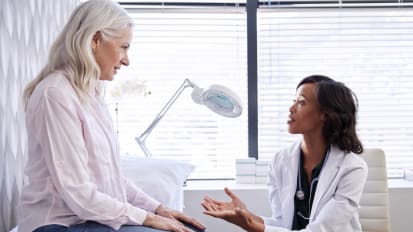 Video
Video
Screening for Cervical Cancer: New Evidence on Options and Outcomes
Gynecologic oncologist Megan Swanson, MD, MPH, deciphers recent changes to cervical cancer screening guidelines and uses the data to illuminate the relative value of test options – Pap smears, detection of high-risk HPV strains, or both tests together.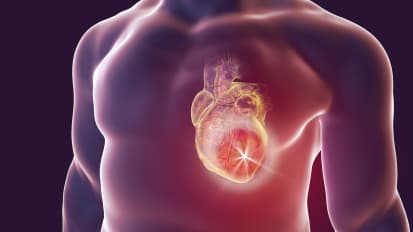 Video
Video
Hypertrophic Cardiomyopathy: What's All the HYPE?
Theodore Abraham, MD, discusses hypertrophic cardiomyopathy (HCM) a genetic heart disease in which the myocardium becomes abnormally thick.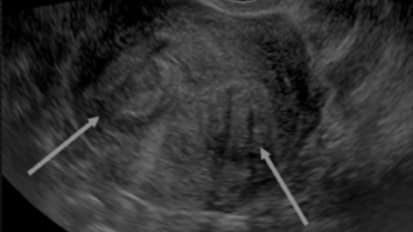 Video
Video
Evaluation & Common Presentation of Fibroids
Dr. Jeannette Lager examines the presentation of fibroids in ultrasound, MRI and CT imaging. Video
Video
Unconscious Bias in Patient Care: Harms and Paths to Healing
While physicians intend to treat all their patients with equal respect and compassion, studies show that favoritism and other implicit attitudes can emerge, especially in times of stress, affecting medical decisions and care quality. Video
Video
Burnout Interventions to Benefit Individuals and Systems
Sunita Mutha, MD, discusses common symptoms, the many negative consequences for the health care field, and proven interventions.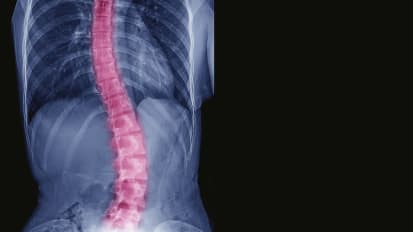 Video
Video
Cervical and Thoracolumbar Spinal Deformity Treatment Strategies, Part III: Case Examples
Lee Tan, MD discusses three recent cervical spine and thoracolumbar spinal deformity cases and the surgical interventions used to treat these diverse conditions.

